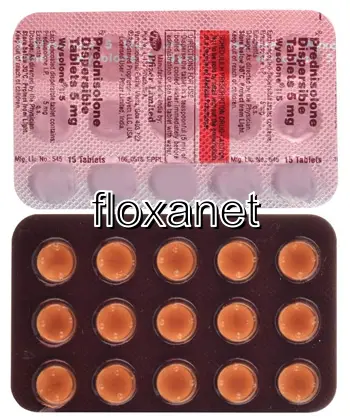| Package | Dosage | Price | Price per Dose | |
|---|---|---|---|---|
| Dosage: 2.5mg | ||||
| 180 pill | 2.5mg | £76.12 | £0.42 | |
| 120 pill | 2.5mg | £68.92 | £0.58 | |
| 90 pill | 2.5mg | £56.57 | £0.63 | |
| 60 pill | 2.5mg | £41.14 | £0.69 | |
| 30 pill | 2.5mg | £36.00 | £1.20 | |
| Dosage: 5mg | ||||
| 180 pill | 5mg | £79.21 | £0.44 | |
| 120 pill | 5mg | £65.83 | £0.55 | |
| 90 pill | 5mg | £56.57 | £0.63 | |
| 60 pill | 5mg | £42.17 | £0.70 | |
| 30 pill | 5mg | £34.97 | £1.16 | |
| Dosage: 10mg | ||||
| 180 pill | 10mg | £85.38 | £0.47 | |
| 120 pill | 10mg | £69.95 | £0.59 | |
| 90 pill | 10mg | £60.69 | £0.68 | |
| 60 pill | 10mg | £47.31 | £0.79 | |
| 30 pill | 10mg | £37.03 | £1.23 | |
| Dosage: 20mg | ||||
| 180 pill | 20mg | £87.44 | £0.48 | |
| 120 pill | 20mg | £73.03 | £0.61 | |
| 90 pill | 20mg | £63.78 | £0.71 | |
| 60 pill | 20mg | £50.40 | £0.84 | |
| 30 pill | 20mg | £39.08 | £1.31 | |
| Dosage: 40mg | ||||
| 180 pill | 40mg | £88.47 | £0.49 | |
| 120 pill | 40mg | £74.06 | £0.62 | |
| 90 pill | 40mg | £65.83 | £0.73 | |
| 60 pill | 40mg | £51.43 | £0.85 | |
| 30 pill | 40mg | £42.17 | £1.41 | |

Prednisolone Description
Overview of Prednisolone
Prednisolone is a synthetic corticosteroid medication widely used in the treatment of various inflammatory and autoimmune conditions. It functions by suppressing the immune system and reducing inflammation, helping to alleviate symptoms associated with numerous health issues. Because of its potent anti-inflammatory effects, prednisolone is often prescribed for conditions such as allergies, asthma, rheumatoid arthritis, and skin disorders. It is available in different forms, including tablets, syrups, and injections, allowing flexibility in administration based on the patient's needs.
Mechanism of Action
This medication works by mimicking the effects of cortisol, a natural hormone produced by the adrenal glands. Once inside the body, prednisolone binds to specific receptors on immune cells, altering the expression of various genes. This process diminishes the production of substances involved in inflammation, such as prostaglandins and leukotrienes. As a result, swelling, redness, and pain are reduced. The suppression of immune responses also makes prednisolone effective in managing autoimmune disorders, where the immune system mistakenly attacks the body's own tissues.
Uses and Applications
Prednisolone is prescribed for a broad spectrum of health issues. It is particularly beneficial in controlling severe allergic reactions and asthma attacks. Patients suffering from autoimmune diseases like lupus or multiple sclerosis also find relief through prednisolone therapy. In dermatology, it helps reduce inflammation and irritation in skin conditions such as eczema and psoriasis. Additionally, prednisolone can be used to treat certain types of cancer and to prevent organ rejection following transplantation. Its versatility makes it a valuable drug in various medical specialties.
Potential Side Effects
While prednisolone provides significant benefits, it also has potential side effects. Common adverse reactions include increased appetite, weight gain, and mood changes. Long-term use can lead to more serious issues like osteoporosis, decreased bone density, and adrenal suppression. Some patients might experience elevated blood sugar levels, which can be problematic for diabetics. Other possible effects include fluid retention, high blood pressure, and increased susceptibility to infections. To minimize risks, it is essential to follow the prescribed dosage and duration of treatment carefully.
Precautions and Interactions
Before starting prednisolone, patients should inform their healthcare provider of any existing medical conditions, especially infections, diabetes, or osteoporosis. It is also important to disclose other medications being taken, as prednisolone can interact with drugs like NSAIDs, certain vaccines, and other immunosuppressants. Patients are advised to avoid live vaccines during treatment. Gradually tapering the dose under medical supervision helps prevent withdrawal symptoms and adrenal insufficiency. Regular monitoring by a healthcare professional is recommended to assess the medication's efficacy and manage side effects effectively.
Conclusion
Prednisolone remains a highly effective medication for managing various inflammatory and autoimmune conditions. Its ability to quickly reduce inflammation and suppress immune activity makes it indispensable in many clinical scenarios. However, due to the risk of side effects, it should be used under strict medical supervision. Proper dosing, awareness of potential interactions, and regular health assessments can help maximize the benefits of prednisolone treatment while minimizing associated risks. Patients should always follow their healthcare provider’s guidance and report any adverse effects promptly.
See Also
